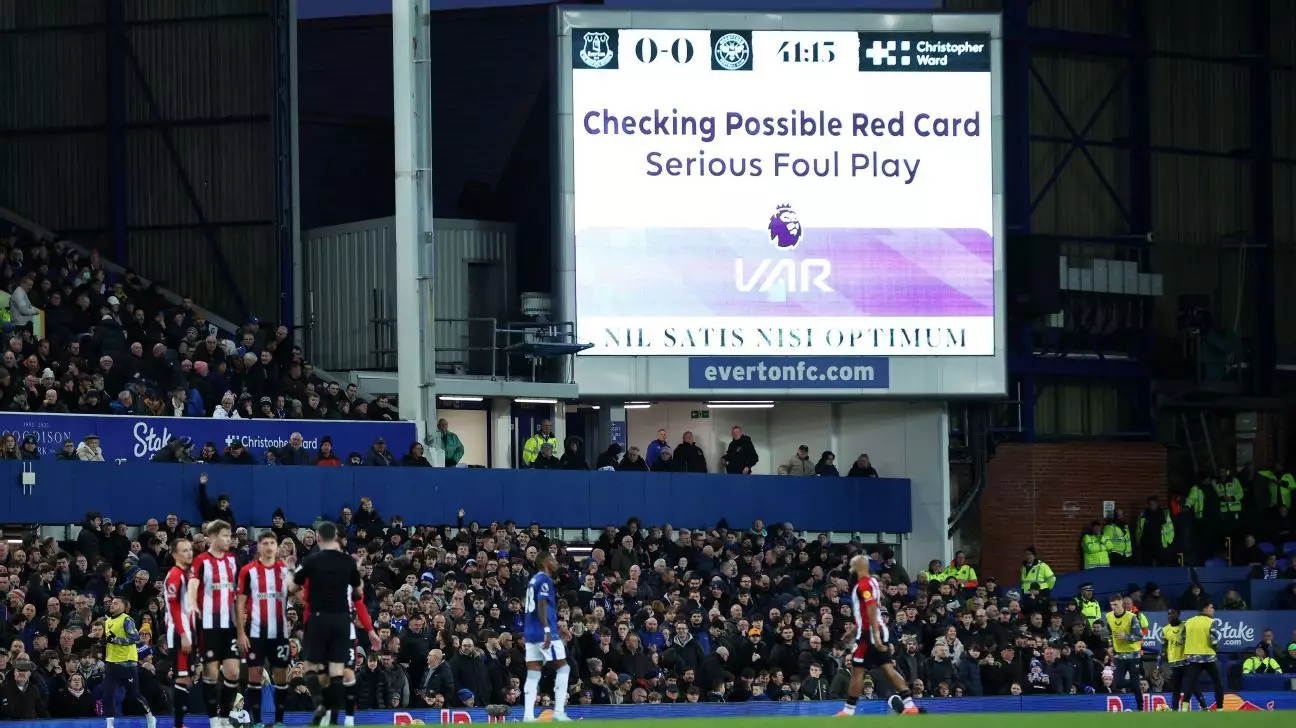In a dramatic turn of events, Brentford FC successfully appealed the red card issued to captain Christian Nørgaard during their recent match against Everton, which ended in a goalless draw. This incident not only raised eyebrows due to the nature of the foul, but it also sparked a broader conversation about the role of the Video Assistant Referee (VAR) in modern football. Nørgaard was penalized for an action in which he apparently made contact with Everton’s goalkeeper, Jordan Pickford, while attempting to chase a loose ball. Such decisions often lean heavily on interpretation, leading to contentious outcomes that can significantly affect a team’s performance.
The contentious call was made after on-field referee Chris Kavanagh originally deemed the challenge by Nørgaard non-foul play. However, VAR official Matt Donohue, who had only recently begun officiating in the Premier League, felt otherwise and recommended that Kavanagh review the incident on the monitor. This situation elucidates a critical issue with VAR; while it is designed to enhance the accuracy of officiating, it can lead to inconsistencies that provoke frustration among players, coaches, and fans alike. In this instance, the interpretation of intent and severity became the crux of the debate.
Brentford manager Thomas Frank’s post-match comments revealed his palpable frustration. He argued passionately that Nørgaard’s intention was not to harm but to play the ball. Frank emphasized that the goalkeeper was in the right path when the incident occurred, and it was merely unfortunate that Nørgaard’s studs came into contact with Pickford’s leg. He insisted that this incident should be viewed through the lens of common sense and questioned the consistency of the officiating standards in such cases. Frank’s arguments reflect a notable sentiment in football: the need for a more nuanced understanding of challenges that constitute serious foul play.
The Implications of the Appeal
Had Brentford not won the appeal, Nørgaard would have faced suspension in crucial upcoming matches against Leicester City, Aston Villa, and Newcastle United. The successful appeal not only preserves his availability for these fixtures but also serves as a significant victory for the club. It underscores the importance of due process in officiating decisions that can have far-reaching consequences for teams as they navigate the demands of the Premier League.
This incident raises an important question: should VAR be a tool for enhancing fairness, or has it inadvertently become a source of inconsistency and confusion? As discussions continue about the effectiveness of this technology in football, the necessity for clearer guidelines and consistent applications of the rules becomes increasingly critical. The Brentford case illustrates that the integration of technology must work in tandem with the human element of the game, valuing intent and context over rigid interpretations of the law. As Brentford moves forward with their season, they do so with a sense of vindication and a call for a more balanced approach to officiating.

